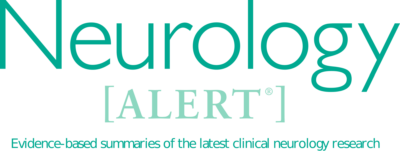
Neurology Alert – November 1, 2022
November 1, 2022
View Issues
-
Is IVIG Treatment Really Better than Natural Recovery in Patients with Guillain-Barré Syndrome?
In this controversial report comparing patients with Guillain-Barré syndrome treated with intravenous immunoglobulin vs. no treatment, the group that appears to have fared the best were patients who had an acute demyelinating syndrome, and not an axonal variant. This was an observational study and not a randomized treatment trial.
-
Intravenous Immunoglobulin in Dermatomyositis
Treatment of dermatomyositis with intravenous immunoglobulin (IVIG) resulted in overall better clinical improvement after 16 weeks compared to patients treated with placebo. However, there was a significant number of thromboembolic adverse events in the treatment group. The group of patients treated was a heterogeneous group. However, IVIG now is U.S. Food and Drug Administration-approved for the treatment of dermatomyositis.
-
Treatment of Progressive Multifocal Leukoencephalopathy
Progressive multifocal leukoencephalopathy, a rare opportunistic viral infection that occurs in patients who have chronic immunosuppression, has defied all attempts at treatment. This observational study, which pooled patient data from multiple centers around the world, showed that there is some benefit using checkpoint inhibitors to help reconstitute the immune system of these patients. However, survival, at best, is 50% of those treated.
-
Long-Term Neurological Outcomes of Patients Treated with CAR-T Therapy
Chimeric antigen receptor (CAR)-T cell therapy is approved for the treatment of lymphoma, leukemia, and multiple myeloma, but its use is associated with early neurotoxicity in almost half of patients. Despite the incidence of neurotoxicity, long-term follow-up of patients after CAR-T infusion suggests that patients’ neurological examination, neuro-imaging studies, and cognition remain unaffected by this treatment.
